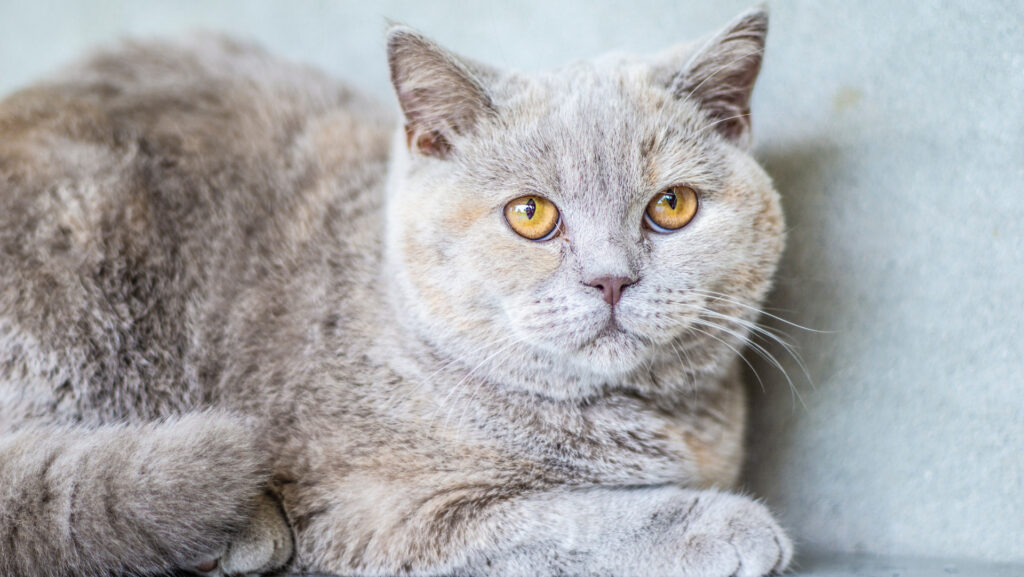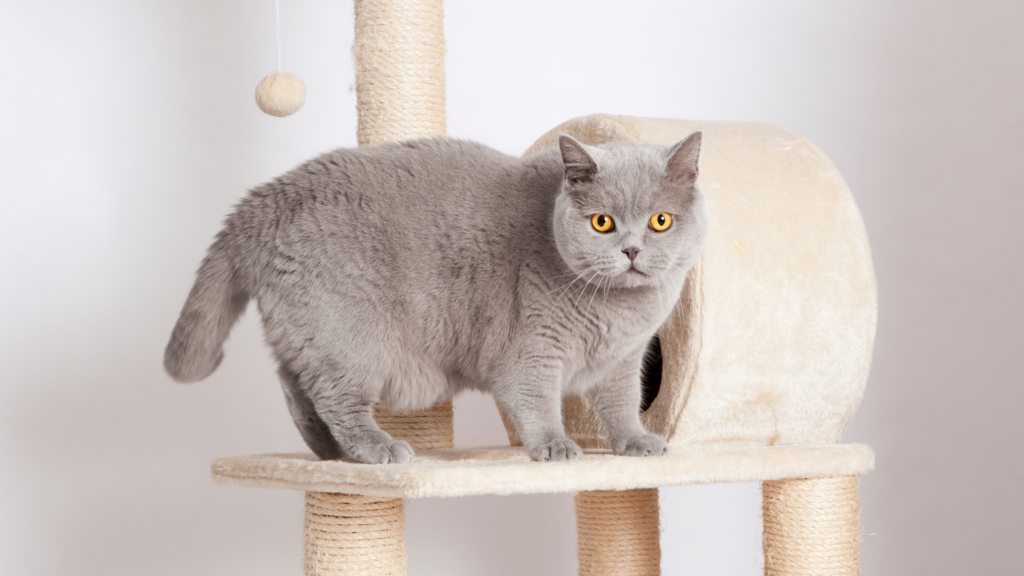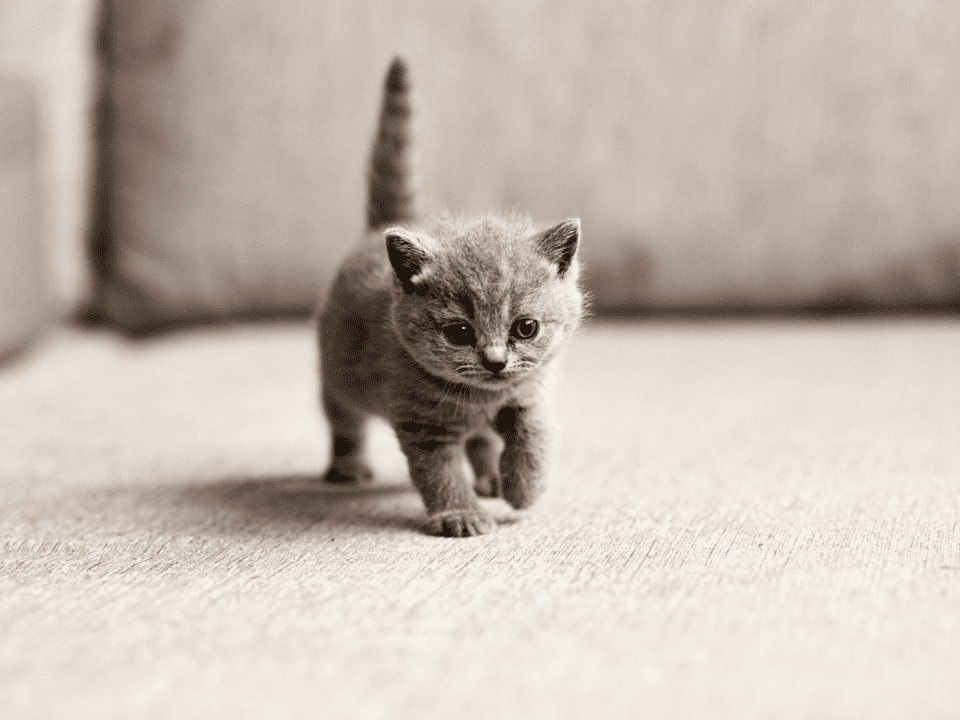British Shorthair Kitten Care Guide: Tips for Bringing Home Your New Companion
Introducing a British Shorthair kitten into your home can be an exciting and rewarding experience. These adorable and affectionate felines make great companions, but they also require proper care and attention to ensure they thrive in their new environment. In this comprehensive guide, we will provide you with all the essential tips and advice you need to care for your British Shorthair kitten and make them feel right at home.
British Shorthair kittens are known for their round faces, thick coats, and sweet personalities. They are a popular breed among cat lovers due to their laid-back temperament and gentle nature. When bringing home a British Shorthair kitten, it’s important to understand their specific needs and requirements to provide them with the best possible care.
Choosing the Right British Shorthair Kitten
When it comes to choosing the right British Shorthair kitten, there are several important factors to consider. Here are some tips to help you find the perfect feline companion:
- Research reputable breeders: Start by researching reputable breeders in your area or online. Look for breeders who have experience with British Shorthair cats and who prioritize the health and well-being of their kittens.
- Visit the breeder in person: Once you have found a potential breeder, arrange a visit to meet the kittens and their parents in person. This will give you a chance to see the living conditions of the kittens and ensure they are being raised in a clean and loving environment.
- Check the kitten’s health: When choosing a British Shorthair kitten, it’s essential to check for signs of good health. Look for bright, clear eyes, a shiny coat, and a playful demeanor. Avoid kittens that appear lethargic or unwell.
- Observe the kitten’s behavior: Spend some time interacting with the kittens to observe their behavior. Look for friendly, sociable kittens that are curious and playful. Avoid kittens that are overly timid or aggressive.
- Ask about vaccinations and health records: Make sure to ask the breeder about the kitten’s vaccination history and any health issues they may have had. A reputable breeder will provide you with a health record for the kitten, including information on vaccinations, deworming, and any medical treatments.
- Consider the kitten’s personality: British Shorthair kittens are known for their laid-back and gentle temperament. Choose a kitten that matches your personality and lifestyle, whether you prefer a playful and energetic kitten or a more relaxed and cuddly one.
- Discuss the terms of sale: Before bringing home your British Shorthair kitten, discuss the terms of sale with the breeder. Make sure you understand the cost of the kitten, any spay/neuter agreements, and any health guarantees or return policies.
- Prepare your home: Before bringing your new British Shorthair kitten home, make sure you have everything they will need, including a cozy bed, litter box, food and water bowls, and toys. Kitten-proof your home by removing any potential hazards and creating a safe space for your new companion.
Preparing Your Home for the New Arrival
Before bringing home your British Shorthair kitten, it’s essential to prepare your home to provide them with a safe and comfortable environment. Here are some tips to help you get ready for your new feline companion:
- Create a designated space: Set up a cozy area in your home where your kitten can relax and feel safe. This could be a separate room or a quiet corner with their bed, litter box, food and water bowls, and toys.
- Kitten-proof your home: Remove any potential hazards such as electrical cords, small objects that could be swallowed, toxic houseplants, and open windows or doors. Make sure your home is a safe space for your curious and playful kitten.
- Provide a scratching post: British Shorthair kittens love to scratch, so make sure to provide them with a sturdy scratching post to keep their claws healthy and prevent them from damaging your furniture.
- Introduce a litter box: Place a litter box in a quiet and easily accessible area for your kitten. Show them where the litter box is located and encourage them to use it regularly.
- Stock up on supplies: Before bringing home your kitten, make sure you have all the essential supplies they will need, including kitten food, treats, grooming tools, toys, and a comfortable bed.

Providing Proper Nutrition
Proper nutrition is vital for the health and well-being of your British Shorthair kitten. Here are some tips to ensure they are getting the right nutrients:
- Choose a high-quality kitten food: Look for kitten food that is specifically formulated for their age and dietary needs. Make sure the food includes essential nutrients such as protein, vitamins, and minerals to support their growth and development.
- Follow feeding guidelines: Feed your kitten according to the guidelines on the food packaging or as recommended by your veterinarian. Offer small, frequent meals throughout the day to keep your kitten satisfied and maintain their energy levels.
- Provide fresh water: Always have fresh water available for your kitten to drink. Keep their water bowl clean and refill it regularly to ensure they stay hydrated.
- Monitor their weight: Keep an eye on your kitten’s weight to ensure they are growing at a healthy rate. If you notice any sudden changes in their weight, consult your veterinarian for advice.
- Avoid table scraps: Resist the temptation to feed your kitten table scraps or human food, as these can be harmful to their digestive system. Stick to a balanced diet of kitten food to meet their nutritional needs.
Hygiene and Grooming Tips
Keeping your British Shorthair kitten clean and well-groomed is essential for their health and well-being. Here are some hygiene and grooming tips to help you care for your furry friend:
- Brush their coat regularly: British Shorthair kittens have a dense and plush coat that requires regular grooming to prevent matting and shedding. Use a soft brush or comb to gently brush their coat at least once a week.
- Trim their nails: Trim your kitten’s nails regularly to prevent them from becoming too long and causing discomfort or damage. Use a pair of pet nail clippers to carefully trim the tip of each nail, being careful not to cut the quick.
- Clean their ears: Check your kitten’s ears regularly for signs of dirt, wax buildup, or infection. Use a damp cotton ball or pad to gently clean the outer ear canal, being careful not to insert anything into the ear canal.
- Brush their teeth: Dental care is essential for your kitten’s overall health. Get them used to having their teeth brushed from a young age using a pet-safe toothbrush and toothpaste. Regular dental care can help prevent dental issues such as plaque and tartar buildup.
- Bathe them as needed: British Shorthair kittens are generally clean animals and may not need frequent baths. However, if your kitten gets dirty or sticky, you can bathe them using a gentle cat shampoo. Remember to dry them thoroughly after the bath to prevent chills.
Training and Socialization
Training and socialization are essential for helping your British Shorthair kitten develop good behavior habits and have positive interactions with people and other animals. Here are some tips to help you train and socialize your kitten:
- Use positive reinforcement: Reward your kitten with treats, praise, or playtime when they exhibit good behavior. Positive reinforcement will help them learn what behaviors are desirable and encourage them to repeat them.
- Start early: Begin training and socializing your kitten from a young age to help them become well-adjusted and confident adults. Expose them to a variety of people, places, and experiences to help them feel comfortable and secure in different situations.
- Teach basic commands: Start with simple commands like “sit,” “stay,” and “come” to help your kitten learn basic obedience. Use treats and toys as incentives to encourage them to follow commands.
- Play and bond with your kitten: Spend quality time playing with your kitten and bonding with them to build a strong relationship. Engage them in interactive play sessions to stimulate their mind and keep them physically active.
- Be patient and consistent: Training takes time and patience, so be consistent in your approach and practice positive reinforcement consistently. Avoid punishment or harsh training methods, as these can be counterproductive and harm your kitten’s trust in you.

Keeping Your Kitten Healthy
Ensuring your British Shorthair kitten stays healthy is a top priority for any pet owner. Here are some tips to help you keep your kitten in optimal health:
- Schedule regular veterinary check-ups: Take your kitten to the vet for regular check-ups and vaccinations to prevent illnesses and monitor their overall health. Follow your veterinarian’s recommendations for vaccinations, deworming, and flea and tick prevention.
- Provide a balanced diet: Feed your kitten a high-quality diet that meets their nutritional needs and supports their growth and development. Avoid overfeeding or giving them too many treats, as this can lead to obesity and health issues.
- Monitor their weight: Keep an eye on your kitten’s weight and growth to ensure they are developing at a healthy rate. If you notice any sudden changes in weight or appetite, consult your veterinarian for advice.
- Keep their environment clean: Create a clean and hygienic environment for your kitten by regularly cleaning their litter box, bedding, and living area. A clean environment can help prevent the spread of illness and parasites.
- Exercise and play: Provide your kitten with plenty of opportunities for exercise and play to keep them active and healthy. Play with them regularly using toys and interactive games to stimulate their mind and keep them physically fit.
Exercise and Playtime
British Shorthair kittens are active and playful by nature, so it’s essential to provide them with plenty of opportunities for exercise and playtime to keep them mentally and physically stimulated. Here are some tips to help you ensure your kitten gets the exercise and playtime they need:
- Interactive toys: Provide your kitten with a variety of interactive toys that stimulate their natural hunting instincts and keep them entertained. Toys such as feather wands, laser pointers, and puzzle toys can keep your kitten engaged and active.
- Play sessions: Engage your kitten in regular play sessions to help them burn off energy and stay physically active. Use toys that encourage jumping, chasing, and pouncing to mimic their natural behaviors.
- Scratching posts: British Shorthair kittens love to scratch, so make sure to provide them with a sturdy scratching post to help them keep their claws healthy and satisfy their natural scratching instincts. Encourage them to use the scratching post by rewarding them with treats or praise.
- Indoor climbing structures: Consider investing in indoor climbing structures or cat trees to provide your kitten with vertical space to explore and climb. These structures can also serve as a cozy resting spot for your kitten to relax and observe their surroundings.
- Rotate toys: Keep your kitten’s interest piqued by rotating their toys regularly and introducing new ones periodically. This can prevent them from getting bored and encourage them to stay active and engaged in play.
Establishing a Routine
Establishing a routine for your British Shorthair kitten can help them feel secure, reduce anxiety, and promote good behavior. Here are some tips for creating a routine that works for you and your feline companion:
- Feeding schedule: Stick to a regular feeding schedule for your kitten to help them establish a routine and maintain a healthy appetite. Offer meals at the same time each day and provide fresh water throughout the day.
- Playtime and exercise: Set aside time each day for playtime and exercise with your kitten to provide them with mental stimulation and physical activity. Engage in interactive play sessions, and training activities, or simply spend quality time bonding with your furry friend.
- Grooming routine: Establish a grooming routine for your kitten that includes brushing their coat, trimming their nails, cleaning their ears, and brushing their teeth regularly. This will help keep them clean, healthy, and comfortable.
- Litter box maintenance: Keep your kitten’s litter box clean and fresh by scooping it daily and replacing the litter regularly. Establish a routine for cleaning the litter box to prevent odors and maintain good hygiene for your kitten.
- Bedtime routine: Create a calming bedtime routine for your kitten to help them wind down and relax before bedtime. Provide a cozy bed or sleeping area and spend some quiet time together to help your kitten feel safe and secure.
Creating a Safe Environment
Creating a safe environment for your British Shorthair kitten is essential to their health and well-being. Here are some tips to ensure your home is a safe place for your feline friend:
- Remove hazards: Identify potential hazards in your home, such as small objects that could be swallowed, toxic plants, electrical cords, and open windows or doors. Keep these hazards out of reach or secure them to prevent accidents.
- Secure cabinets and drawers: British Shorthair kittens are curious and may try to explore cabinets and drawers. Use childproof latches to secure these areas and prevent your kitten from accessing harmful or dangerous items.
- Block off dangerous areas: Block off any areas in your home that could be unsafe for your kittens, such as stairs, balconies, or rooms with potential dangers. Use baby gates or barriers to restrict access to these areas.
- Provide a safe hiding spot: Create a safe and cozy hiding spot for your kitten where they can retreat if they feel scared or overwhelmed. This could be a cat bed, blanket, or hiding spot in a quiet corner of your home.
- Supervise outdoor excursions: If you allow your British Shorthair kitten to go outside, supervise their outdoor excursions to ensure they stay safe and avoid potential dangers such as traffic, predators, or toxic plants. Consider providing a secure outdoor enclosure or leash training your kitten for outdoor adventures.

Monitoring Your Kitten’s Health
Monitoring your British Shorthair kitten’s health is essential for detecting any potential issues early and ensuring they receive proper care. Here are some tips to help you monitor your kitten’s health:
- Schedule regular veterinary check-ups: Take your kitten to the vet for regular check-ups and vaccinations to monitor their overall health and prevent illnesses. Follow your veterinarian’s recommendations for vaccinations, deworming, and flea and tick prevention.
- Watch for changes in behavior: Pay attention to any changes in your kitten’s behavior, such as changes in appetite, energy levels, litter box habits, or grooming habits. These changes could be signs of underlying health issues that require attention.
- Monitor weight and growth: Keep track of your kitten’s weight and growth to ensure they are developing at a healthy rate. Noticing sudden changes in weight or growth can be a sign of health problems that need to be addressed by your veterinarian.
- Check for signs of illness: Keep an eye out for signs of illness in your kitten, such as vomiting, diarrhea, lethargy, coughing, sneezing, or changes in breathing. If you notice any of these symptoms, consult your veterinarian for advice.
- Maintain a health care routine: Establish a health care routine for your kitten that includes regular grooming, dental care, parasite prevention, and nutritional care. Providing proper care and attention to your kitten’s health can help them stay happy and healthy.
Introducing Your Kitten to Other Pets
Introducing your British Shorthair kitten to other pets in your household requires careful planning and patience to ensure a smooth transition. Here are some tips to help you introduce your kitten to other pets:
- Gradual introduction: Start by allowing your kitten and other pets to become familiar with each other’s scents before meeting face-to-face. Swap bedding or blankets between the pets to help them get used to each other’s smell.
- Supervised meetings: Introduce your kitten to other pets in controlled, supervised settings to prevent any potential conflicts. Keep interactions short and positive, and reward good behavior with treats or praise.
- Provide separate spaces: Make sure each pet has their own space where they can retreat if they feel overwhelmed or stressed. Provide separate food, water, litter boxes, and sleeping areas to help prevent resource guarding or territorial behavior.
- Monitor interactions: Pay close attention to how your pets interact with each other and intervene if necessary to prevent any aggressive behavior. Give each pet time to adjust to the new dynamic and be patient as they learn to coexist peacefully.
- Positive reinforcement: Use positive reinforcement to reward your pets for friendly interactions and good behavior. Encourage them to play and bond with each other through supervised play sessions and activities that they enjoy.
Dealing with Behavioral Issues
British Shorthair kittens, like all pets, may exhibit behavioral issues from time to time. Here are some common behavioral issues and tips for addressing them:
- Scratching furniture: Provide your kitten with a variety of scratching posts and surfaces to help redirect their scratching behavior. Use catnip or toys to encourage them to use the scratching posts instead of furniture.
- Aggression: If your kitten displays aggressive behavior, such as biting or scratching, redirect their energy with interactive play or toys. Avoid punishing them and instead focus on positive reinforcement to encourage good behavior.
- Litter box problems: If your kitten has litter box issues, such as avoiding the litter box or having accidents outside of it, ensure the litter box is clean and easily accessible. Use positive reinforcement to reward them for using the litter box correctly.
- Excessive meowing: British Shorthair kittens may meow for attention or out of boredom. Engage in interactive play sessions, provide mental stimulation, and ensure their basic needs are met to reduce excessive meowing.
- Fear or anxiety: If your kitten displays signs of fear or anxiety, create a calm and quiet environment for them to feel safe and secure. Provide hiding spots, soothing music, or pheromone diffusers to help reduce their stress.
By taking a gradual approach to introducing your kitten to other pets and addressing any behavioral issues with patience and positive reinforcement, you can help your British Shorthair kitten adjust to their new environment and thrive in your household. Remember to consult with a veterinarian or animal behaviorist for additional support and guidance if needed.

Traveling with Your Kitten
Traveling with your British Shorthair kitten can be a rewarding experience, but it requires careful planning to ensure their safety and comfort. Here are some tips for traveling with your kitten:
- Prepare a travel carrier: Invest in a sturdy and secure travel carrier that provides enough space for your kitten to stand, turn around, and lie down comfortably. Line the carrier with bedding, toys, and familiar scents to help your kitten feel safe and secure during the journey.
- Accustom your kitten to the carrier: Before traveling, acclimate your kitten to the carrier by leaving it open in your home for them to explore and lounge in. Offer treats, meals, and positive reinforcement to create a positive association with the carrier.
- Plan rest stops: If you’re traveling long distances by car, plan regular rest stops to allow your kitten to stretch their legs, use the litter box, and have a drink of water. Keep the carrier secure in the car and never leave your kitten unattended in a parked vehicle.
- Bring essential supplies: Pack a travel kit for your kitten that includes their food, water, litter, litter box, grooming supplies, medications, and any comfort items they may need. Make sure to bring their medical records, identification tags, and a recent photo in case of emergencies.
- Monitor your kitten: Keep a close eye on your kitten during travel to ensure they are comfortable and stress-free. Offer reassurance, speak softly, and provide treats to help keep your kitten calm and happy during the journey.
Conclusion
Congratulations on welcoming a British Shorthair kitten into your home! By providing a safe environment, monitoring their health, introducing them to other pets gradually, addressing behavioral issues with patience and positive reinforcement, and planning for travel, you can help your kitten thrive and enjoy a fulfilling life with you.
Remember to prioritize your kitten’s well-being, provide them with love and attention, and create a nurturing environment where they can grow and flourish. Cherish the special bond you share with your British Shorthair kitten and treasure the joy and companionship they bring to your life.
If you have any questions or concerns about caring for your kitten, don’t hesitate to consult with your veterinarian or seek guidance from reputable sources. Enjoy the journey of raising your British Shorthair kitten and savor the many memorable moments you will share together.
Also, Read:
Pet Care Tips for Cats for Beginners
Pet Care Tips for Dogs for Beginners
